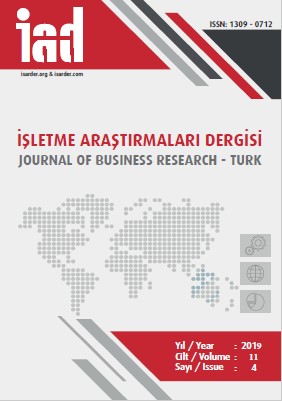Çevresel Bilinç Yeşil Davranışı Etkiler mi? Türkiye’nin Doğu Karadeniz Bölgesinde Bir Araştırma
Does Environmental Consciousness Impact Green Behavior? A Research in the Eastern Black Sea Region of Turkey
Author(s): Arzu TUYGUN TOKLUSubject(s): Energy and Environmental Studies, Environmental and Energy policy, Behaviorism, Human Ecology
Published by: İşletme Araştırmaları Dergisi
Keywords: Environmental Consciousness; Green Product; the Theory of Planned Behavior; Perceived Value;
Summary/Abstract: Purpose – Green product is a product that does not contain any toxic substances, produced using environmentally friendly processes and approved by an independent organization. Here, it is required to ensure the future of public health and the environment in the entire supply chain, from raw materials to the end user. The purpose of this research is to examine the behavior of consumers towards green products in the eastern Black Sea region of Turkey. For this aim, the effect of environmental consciousness are investigated on perceived value, attitudes towards green products, subjective norms and perceived behavioral control. In addition, it is also examined the effect of these variables on purchase intention toward green products. Design/methodology/approach – The data of the study, which uses basically Ajzen's the Theory of Planned Behavior, were obtained by using convenience sampling method and surveys conducted with consumers on the web and face to face. The collected data were tested by SmartPLS structural equation modeling and SPSS v23 statistical program. Findings – Environmental consciousness affects attitude, subjective norm, perceived behavioral control and perceived value. While attitude, perceived behavioral control and perceived value affect purchase intention, only subjective norm was not found to be effective on purchase intention. It was found that environmental consciousness was statistically higher in males than females, but there was no significant difference in other variables based on gender.
Journal: İşletme Araştırmaları Dergisi
- Issue Year: 11/2019
- Issue No: 4
- Page Range: 2799-2811
- Page Count: 13
- Language: Turkish

